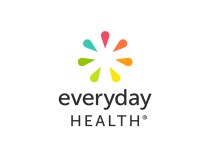
EverydayHealth
Health resources and personalized health tools. Information and news on depression, digestive health, diabetes, breast cancer, cardiovascular health
Follow this authorScientists are continually searching for the next big breakthrough in cancer research. But so much of what has already been discovered on how to reduce cancer risk is not being put into practice. More than 50 percent of cancer cases, and 50 percent of cancer deaths, can be prevented with the knowledge we have right now.
For example, we know that certain viruses can cause cancer. The good news is that we have ways to vaccinate against or treat those viruses and, ultimately, prevent cancer. Unfortunately, not enough people are aware of the link between viruses and cancer, so they do not take steps to protect themselves and their loved ones.
In an effort to help save lives, the Prevent Cancer Foundation launched Think About the Link, an education campaign that aims to increase awareness of the connection between certain viruses and cancer, and how to prevent them.
Human Papillomavirus (HPV)
The human papillomavirus (HPV) is one of the viruses linked to cancer. HPV is responsible for almost all cervical cancers, but it can also cause at least five other types of cancer, including vulvar, vaginal, penile, anal, and oropharyngeal (back of the throat).
Each year, more than 27,000 women and men in the United States are diagnosed with a cancer caused by HPV — that’s a new case every 20 minutes, and most of these could have been prevented.
There is a safe vaccine available to prevent transmission of HPV, and the Centers for Disease Control and Prevention (CDC) recommends the vaccine for all girls and boys ages 11 to 12. So far, though, only 40 percent of adolescent girls, and 22 percent of adolescent boys, in the United States have received all three recommended doses of the vaccine.
Furthermore, in a survey conducted by the Prevent Cancer Foundation earlier this year, we found that less than half of adults (46 percent) were aware that with immunization, most HPV-induced cancers can be prevented. We must help people understand the connection; the knowledge can be lifesaving.
Hepatitis B and Hepatitis C
In addition, scientists have discovered that most liver cancer is caused by the hepatitis B and hepatitis C viruses. Liver cancer kills about 16,000 men and 7,000 women in the United States each year. But there is a vaccine available for hepatitis B, as well as screening and curative treatment for hepatitis C.
By preventing or treating these viruses, we can prevent 80 to 95 percent of liver cancer cases. According to our research, 76 percent of adults are unaware that the hepatitis B vaccine can reduce the risk of liver cancer, and 73 percent of adults are unaware that hepatitis C treatment can reduce the risk of liver cancer.
Increasing Awareness and Saving Lives
It’s time to increase our awareness and save lives. Follow these five tips to protect yourself, your children, and others from virally-induced cancers:
1. Understand the link. Knowing that certain viruses can cause cancer is the first step toward protecting yourself from those viruses by getting vaccinated, screened, and treated.
2. Know your risk. Talk to your healthcare provider to find out if you are at increased risk for any of these viruses. Currently, only 13 percent of Hispanics, and 29 percent of Asian-Americans, are aware of their higher risk of hepatitis B-induced cancer, and only 11 percent of baby boomers are aware of their higher risk of hepatitis C-induced cancer.
3. Start a conversation with your healthcare provider. Only 7 percent of adults say their physician has recommended one or more vaccines specifically to reduce cancer risk. Be your own best health advocate and ask your healthcare provider about preventing virally-induced cancers.
4. Get vaccinated, screened, and treated. The CDC recommends the HPV vaccine for boys and girls ages 11 to 12, and the hepatitis B vaccine at birth and for children up to age 18 who have not received it. Hepatitis C screening is recommended for those at high risk of infection. Talk to your healthcare provider about the vaccines, screenings, or treatments available for you and your children.
5. Spread the word. If more people know about the connection between viruses and cancer, fewer people will die from these diseases. Share your knowledge with your community, and encourage your healthcare providers to talk about the link with their patients. Knowing about it is the first step to help, as we say at the Prevent Cancer Foundation, Stop Cancer Before It Starts!
Post your Comment
Please login or sign up to comment
Comments